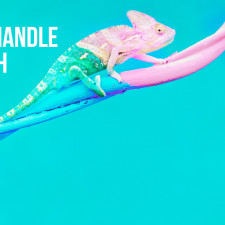Stress management tips & techniques
Stress management tips and techniques from life coaches have been proven very effective. At TheONE you can have instant contact via Live Video Calling with one of the many professionals in the field of stress management. Sometimes one conversation can be enough to reduce your stress to a minimum. That is why you only pay per minute and the first minute is free.
The best stress management tips and techniques
If you have to suffer emotionally more than you can handle, stress is the result. It feels different for everyone when this point is reached. Some feel stress when thinking about flying and others feel stress when thinking of speaking in public.
Except for extreme cases, the cause of stress is rarely something that happens outside of the person. In almost all cases, stress takes place within a person's mind. This means that stress can be reduced very well by one or more sessions with a life coach at TheONE.
Stress is closely linked to over-fatigue, mental exhaustion and a burnout.
Over fatigue: Possible cause> too little sleep or too much physical or mental work in a short period of time. An unhealthy diet can also contribute to fatigue.
Stress: Possible cause> to feel that more is expected from you than you can handle. If you are already tired you’re more easily get stressed.
Mental exhaustion: Possible cause> going beyond your limits for a long time after fatigue or stress.
Burn-out: Possible cause> during the mental exhaustion, continuing until the moment that your body or mind literally blocks and there are only emotions left.
How do you recognize that you have to much stress?
Although stress can cause various symptoms, stress usually manifests in one of the following ways.
- Insomnia or feeling very tired
- Unexplained headache, muscle pain, back pain or stomach pain
- Fearful feelings
- Sudden eczema or eczema that suddenly gets worse
- Loss of appetite or eating a lot of food
- Excessive alcohol or drug abuse
- Uncontrollably trembling hands or legs
- Palpitations and high blood pressure
- Loss of concentration
- Reduced libido
What can you do if you have stress?
The most important remedy for stress is saying "no" to situations that cause stress. The person experiencing stress, however, will find in many cases that there is a lot of things to do and believe in that case that "no" is not an option.
Other things you can do against stress is the following:
- Coaching from a life coach
- Yoga, meditation or walking
- Healthy food and drinking plenty of water
- Exercise with or without the help of an online personal fitness trainer
- Art therapy with professional guidance
Reduced resilience can constantly cause stress
If your resilience is reduced, this can give you a continuous sense of stress. Your attention is then directed more outwardly instead of to yourself. This is called "attentional" instead of "intentional" thinking and acting. If you suspect that your resilience is reduced, contact a specialized resilience coach.
70% of people live in stress
In an interview with neuro-scientist Joe Dispenza about his book "You are the creator of your own world", he talks extensively about how bad it is that 70% of people have continuous stress to some extent. This is not because there is a danger or that there are life-threatening events going on. It's because they don't want to let go of the past.
We continue to ruminate unpleasant events with the idea that we are then prepared for what might come in the future. Not only is this literally unhealthy, the reliving of those unpleasant events and the stress can also have a very negative impact on our personality.
We are stuck with learned habits
A habit is a repetitive set of automatic and unconscious thoughts, behaviors and emotions learned through rehearsal. As Dispenza puts it well, a habit is something you do so often, that your body knows better than your brain.
Most people rehearse the following pattern:
- You get up and get out of bed on the same side as the day before.
- You walk to the bathroom, go to the toilet, and take a shower.
- You walk to the kitchen and make breakfast with a cup of coffee.
- You get in your car and drive the same way to work as always, to see and speak to the same people there.
- And so on
Our brain is a recording of the past.
As we all follow our own patterns, we also have thoughts about the past. Thoughts that are connected to people and things, that are connected to places and time. These thoughts are also connected to emotions.
So we wake up every day with emotions from the past and turn off a pattern with recurring - often the same - emotions. This means that a lot of people get up with negative emotions that cause stress. We sing the same song every day, and we keep these negative emotions in our bodies.
How you think and feel determines your state of being
Because your state of being is determined by how you think - what you think about - and what emotions arise in that process, your state of being is based on the past. Your body makes no distinction whether something is going on or not and reacts only to your thoughts and emotions, so we feel stress or anxiety based on the past.
The conclusion of Dispenza is that your thoughts from the past determine your present state of being but also predict your future. You feel miserable or stressed and that emotion evokes new situations that cause stress.
We lose ourselves in a program
Because we all get up with the same routine and evoke the same emotions, which in turn evokes the same physical (stress) reaction, we are stuck in an unconscious and unhealthy program. And when it's time to change, your body and mind are stuck in the constantly twisted program.
By the time we reach the age of 35, 95% of our lives are based on an unconsciously acquired set of behaviors, emotions, habits, beliefs, and perceptions that functions like a computer program. So that leaves you with only 5% conscious thinking capacity to make a change.
How to make effective change in your life to manage our stress?
5% conscious thinking ability to become healthier, happier or freer is not much. This is often even overshadowed by the computer program that has been taught. But there are ways to turn off the program.
One of them is meditation. During deep meditation, the program is of no use and you can make full use of the remaining 5% of your conscious thinking capacity to make important changes.
Unfortunately, most people wait until the stress is at the level of making you sick. Or sometimes even depressed, which you can't label as a disease. Something dramatic has to happen before the will arises to break through the learned pattern.
But why wait until something bad happens? It is easier to change when you are happy and happy than when something traumatic happens.
Emotions follow - learned - thoughts
Stress is a consequence of thoughts and emotions and those thoughts and emotions are usually a consequence of repetition. Too many changes in life or something bad happened in the past and you keep repeating the event to prevent it in the future. Unconsciously you continue to feed yourself with the same negative emotion, which makes the emotion get even deeper into your system.
Contact a mental or life coach at TheONE via live video calling if you experience stress and you are not able to reduce it yourself.
-
Rose Marie NelsonLife CoachUS$ 2,50 pm
-
Daria MagdaQi gong practiceUS$ 1,88 pm
-
Stefania D'Ammiccoyoga, writing, sportUS$ 0,30 pm
-
Ornela theCoachLife coachUS$ 0,50 pm
-
Liz de WitMindset coachingUS$ 0,47 pm
-
Rey KetenLife Coach & MentorUS$ 0,94 pm


































